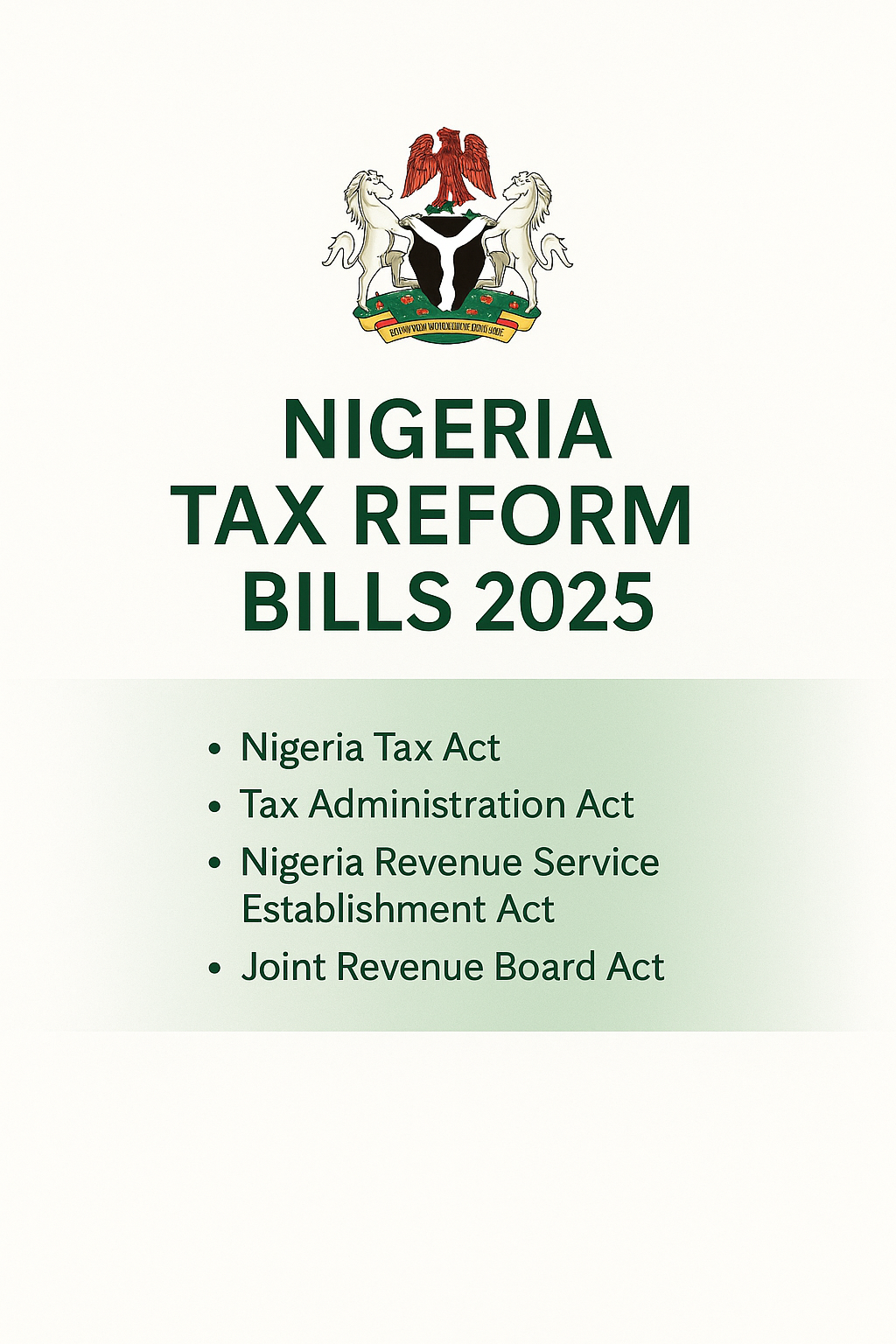Policy analysts have drawn up a checklist of more than 40 probing questions that lawmakers, revenue-service chiefs and civil-society monitors must answer before the Nigeria Tax Administration Act 2025 goes into full swing. The questions, obtained by NoGreeAfrica, on Friday, zero-in on grey areas that could allow rent-seeking by officials or tax-evasion schemes by companies if left unresolved.
Below is a section-by-section snapshot of the issues raised:
*Note* § denotes Section
Jurisdiction of Tax Authorities – § 3
- Outsourcing transparency: What disclosure rules will govern any state deal that hands PAYE or VAT collection to private agents?
- Dual-collection overlap: How will state audits be reconciled with new NRS files to stop duplicate or missing assessments?
- Unified ledger: When will a real-time, nationwide receipt ledger be ready, and who will audit it?
- Conflict resolution: Which forum will handle constitutional disputes over taxes that are traditionally concurrent?
- Retention caps: Will the law set a ceiling on the commissions private collectors charge?
Taxpayer Identification – § 7
- How will auto-registration comply with Nigeria Data Protection regulations?
- What biometric or algorithmic checks will stop multiple IDs for one taxpayer?
- Which controls will flag “ghost” entities created without CAC, BVN or NIN links?
- Who can mark a company “inactive” and will such actions be logged independently?
- Will the public get an online portal to verify any Tax ID?
Digital VAT Fiscalisation – §§ 23 & 99
- What phased roll-out or subsidy will help SMEs buy electronic fiscal devices (EFDs)?
- Who certifies EFD firmware and how frequent are random integrity checks?
- What safe-harbour rules apply when the Service portal is offline?
- Will certification fees for EFD suppliers be published and capped?
- How will each transaction on an EFD be mirrored automatically in the NRS database?
Enforcement & Investigation – §§ 61-63
- Will detailed search-and-seizure protocols be published to curb arbitrary force?
- What objective triggers will activate a lifestyle-audit and can taxpayers appeal in advance?
- How will NRS probes avoid overlap with EFCC or ICPC cases?
- Is there a tamper-proof digital chain-of-custody for seized assets?
- Are field officers expressly barred from negotiating on-the-spot cash settlements?
Filing & Payment – Part IV
- What turnover limit decides whether firms can file unaudited “abridged” accounts?
- When will accreditation criteria for tax agents be published and the register made public?
- How will naira-based penalties be adjusted on foreign-currency assessments to block FX arbitrage?
- Will a statutory cap tame interest rates that rise with the CBN’s Monetary Policy Rate?
- What uptime target will the new e-filing platform guarantee?
Penalties & Offences – Part V
- Which objective conditions justify waiving penalties and will every waiver be published?
- Will fines be indexed annually for inflation to keep their bite?
- Could penalties be scaled by company size to avoid crushing start-ups?
- How will crypto-asset enforcement actions be disclosed to prevent hush money deals?
- What safeguards avert double punishment when administrative and criminal sanctions collide?
Revenue Distribution & Fiscal Federalism – § 77
- What exact test will fix the “place of consumption” for VAT on digital sales and roaming?
- Will the allocation spreadsheet and its inputs be posted online each month?
- Which independent body will audit state-reported consumption figures?
- How will Local Government shares be shielded from diversion at state treasuries?
- What timetable aligns the new sharing formula with older revenue-allocation laws?
Miscellaneous & Special Provisions
- National Single Window (§ 387): What fee-setting and procurement rules will steer portal contracts?
- VASP penalties: How will regulators publish licence suspensions to stop secret “pay-to-play” bargains?
- Mineral royalties (§ 117): Will the SOFR reference date be fixed by regulation to deter rate manipulation?
- General penalty (§ 121): Is there a plan to tier the flat ₦1 million fine by company size or repeat-offender status?
- Excise & FX gap (§§ 130-132): When will sector-specific sanction powers return to plug the current enforcement vacuum?
Why it matters
Economic-governance experts say clear answers to the questions could spell the difference between a reform that widens Nigeria’s tax net and one that merely shifts rents from pockets old to new.
“The Act is a game-changer on paper, any loopholes around data-integrity, delegation deals and penalty waivers can be weaponised if not closed now,” said, a fiscal-policy researcher at the Centre for Transparency Studies.
Civil-society groups welcomed the push for up-front disclosure. “Publishing the allocation spreadsheet and audit trails for seized assets would build trust overnight,”
Meanwhile, business chambers urged fast clarity on e-filing reliability and SME support for fiscal devices. “Nobody wants a repeat of past roll-outs where the portal crashes on deadline day,” said a tax committee chair at the Manufacturers Association of Nigeria.
The National Assembly’s joint finance committees are expected to open public hearings on implementation guidelines next month. Observers say the 40-point checklist could become the unofficial scorecard for measuring how rigorously officials plug revenue leaks before the law’s commencement date of Sept. 1.







